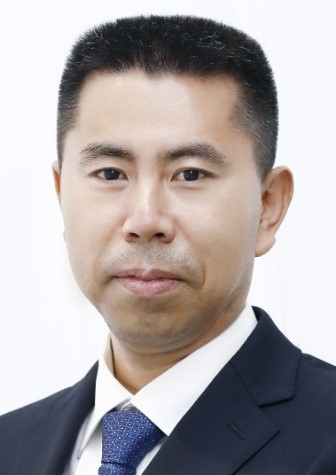—— Plenary Speaker ——

Prof. Baojun (Bruce) Xu
Department Head, Department of Life Sciences, BNU-HKBU United International College, ChinaSpeech Title: Anti-inflammatory and Gut Microbiota Modulatory Effects of Structurally Modified Polysaccharides from Edible Mushroom Auricularia auricula in DSS-induced Colitis Mice
Abstract: Auricularia auricula-judae (Jew’s ear) is a popular edible and medicinal mushroom. Fungal polysaccharides have taken great attention due to their diverse biological activities. However, the biological potential remains unknown due to the structural complexity and high molecular weight of fungal polysaccharides. This study aims to investigate structurally modified Jew’s ear polysaccharides' anti-inflammatory effects, gut microbiota regulatory effects, and their underlying mechanisms in DSS-induced colitis mouse model. AP-1 polysaccharide was isolated from Jew’s ear and then structurally modified by ultrasonic cell disruptor to AP-2 and AP-3. Furthermore, AP-1, AP-2, and AP-3 polysaccharides were administered to the DSS-induced colitis mice to investigate their anti-inflammatory effects and gut microbiota-regulatory effects. The histological changes in the colon were observed by hematoxylin and eosin (H&E), and alcian blue staining. Enzyme-linked immunosorbent assay (ELISA) analysed a series of pro-inflammatory cytokines. Cyclooxygenase-2 (COX-2), inducible nitric oxide synthase (iNOS), and nuclear factor kappa B (NF-κB) signalling proteins were analyzed by western blot, while zonula occludens-1(ZO-1) protein expression was analysed using immunofluorescence. 16s rRNA gut microbiota sequences were performed in mice fecal samples. The results showed that DSS treatment significantly reduced body weight, increased disease activity index (DAI), shortened colon length, increased diarrhea, bleeding diffuse infiltration of the mucosa, submucosa, and crypt, and decreased mucins expression in the colon, while APs treatments effectively ameliorated the above symptoms of inflammation induced by DSS. TNF-α, IL-1β, and IL-6 secretion were significantly reduced in groups treated with APs polysaccharides, while AP-3 HD treatment group showed the best protective effects. Furthermore, COX-2, iNOS, and NF-κB signalling proteins (p-p65 and p-IκBα) were significantly downregulated, while ZO-1 protein expression was significantly upregulated in AP-3 treatment groups. AP-3 relatively suppressed unhealthy gut microbiota (Gammaproteobacteria and Enterobacteriaceae) and enhanced healthy gut microbiota (Allobaculum and Alloprevotella) in DSS-induced colitis mice. These findings demonstrate that ultrasonic is an effective method for modifying biopolymers, and structurally modified Jew’s ear polysaccharides could be a great source of anti-inflammatory therapeutic and functional food products after further extensive research into the molecular mechanism and clinical trials.
Biography: Dr. Xu is a Chair Professor in Beijing Normal University-Hong Kong Baptist University United International College (UIC, a full English teaching college in China), Zhuhai Scholar Distinguished Professor, Department Head of Department of Life Sciences, Program Director of Food Science and Technology Program, author of over 290 peer-reviewed papers. Dr. Xu received Ph.D. in Food Science from Chungnam National University, South Korea. He conducted postdoctoral research work in North Dakota State University (NDSU), Purdue University, and Gerald P. Murphy Cancer Foundation in USA during 2005-2009. He did short-term visiting research in NDSU in 2012, and University Georgia in 2014, and followed by visiting research during his sabbatical leave (7 months) in Pennsylvania State University in USA in 2016. Dr. Xu is serving as Associate Editor-in-Chief of Food Science and Human Wellness, Associate Editor of Food Research International, Associate Editor of Food Frontiers, and the editorial board member of around 10 international journals. He received inaugural President’s Award for Outstanding Research of UIC in 2016, President’s Award for Outstanding Service of UIC in 2020. Dr. Xu has been listed in the world's top 2% scientists by Stanford University in 2020, 2021, 2022, and has been listed in the Best Scientist in the world in the field of Biology and Biochemistry at Research.com in 2023.
